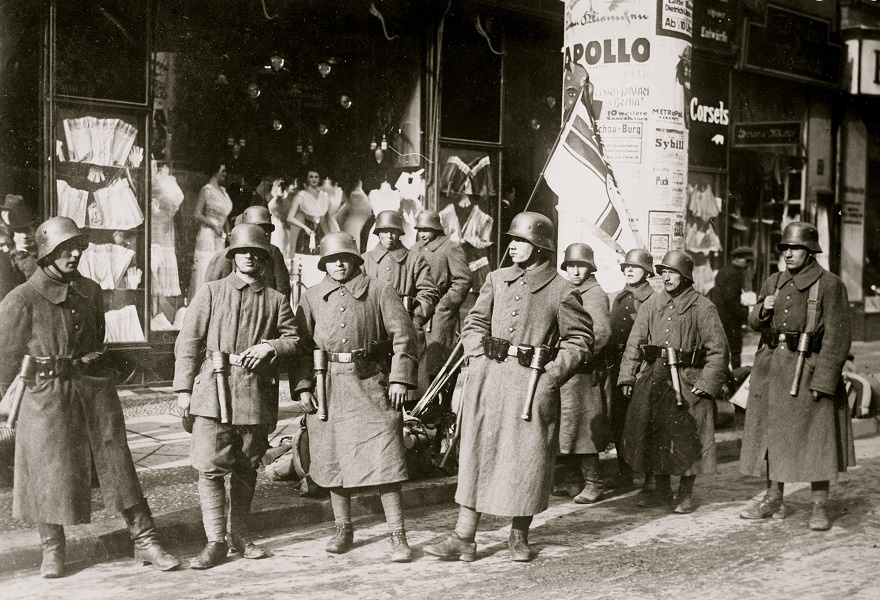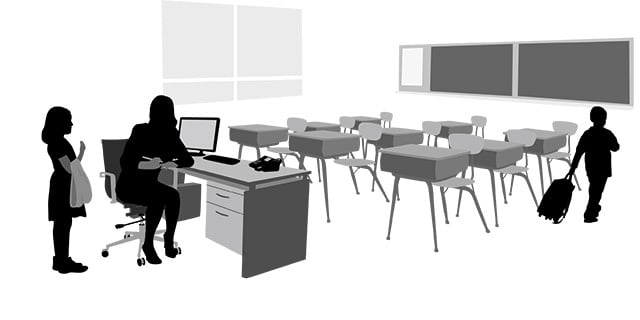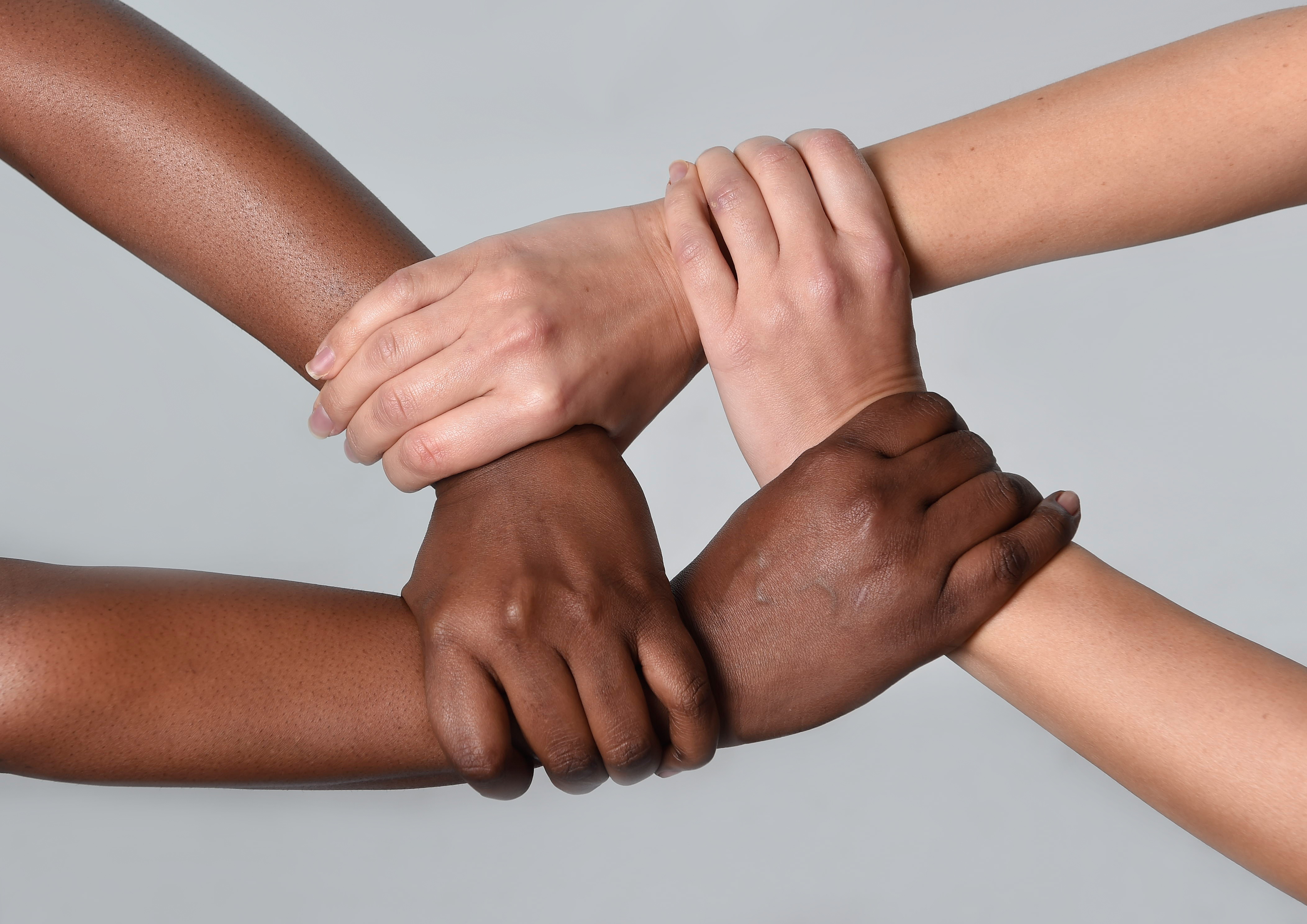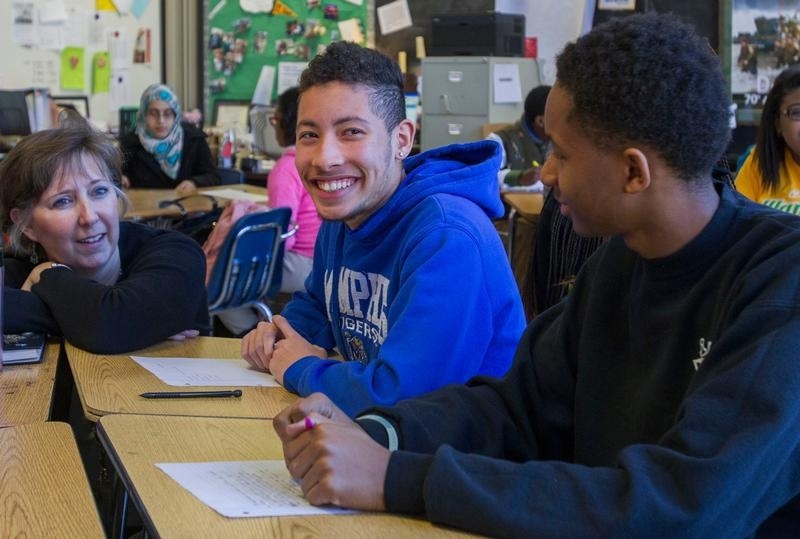Holocaust and Human Behavior explores the history of the Weimar Republic in Germany, the rise of the Nazi Party during that era, and the Nazis’ assault on democracy during their first years in power. This history can help us reflect on the nature of democracy, itself, and what factors may sustain it or undermine it in any country and in any time period.
Today’s News, Tomorrow’s History: Refugee Children Found a Home in Dallas
Posted by Monica Brady-Myerov on August 31, 2017
Today’s News, Tomorrow’s History is an ongoing series with Listenwise. This series connects Facing History’s themes with today’s current events using public radio to guide and facilitate discussions around the social issues of our time. We will take a look at a family in Dallas who has opened their home to refugees.
Topics: Today's News Tomorrow's History, current events, Listenwise
Charlottesville Roundup: Lessons to Use in Your Classroom Today
Posted by Facing History and Ourselves on August 29, 2017
In response to the recent events in Charlottesville, Facing History and Ourselves, Teaching Tolerance, the Anti-Defamation League, the American Federation of Teachers, and EduColor teamed up to support educators as they return to the classroom.
Topics: current events
Why Teach About Migration? Because It's the Story of Humankind
Posted by Adam Strom on August 24, 2017
It is August, a time when, although technically on vacation, many educators in the United States have already turned their attention to their classrooms. Some teachers are buying supplies; others are rewriting lessons and curricula. Most are doing both. A lot of us are thinking about our students and how we can create learning environments that will allow all of them to thrive.
Topics: Immigration
Build Relationships to Create Equity for Minority Students
Posted by Akisha R. Jones on August 21, 2017
Growing up, my favorite teacher, by far, was Mr. Collins, my AP calculus teacher at Huron High School. The class was tough — more than I thought I could handle. But Mr. Collins never let me fail. He made sure I was present and engaged, stayed with me after class when I needed extra help, and gave me rides home when necessary. I could laugh with Mr. Collins and I could cry with him. He was even in communication with my mother about my progress. Mr. Collins set high expectations for my success, and in the end, I passed the class — and the AP exam.
I was one of a handful of black students in the classroom, and Mr. Collins was white.
Topics: Race and Membership
What the 1965 Voting Rights Act Can Teach Us About Voter Fraud Today
Posted by Daniel Osborn on August 17, 2017
The violence and bigotry displayed in Charlottesville last weekend reminds us of the challenges that racial hatred poses to democracy. In August 1965, President Lyndon B. Johnson addressed one aspect of this by signing the Voting Rights Act to safeguard the voting rights of African Americans. Yet, decades of efforts to deny the vote highlight the tensions between just and unjust laws. Looking to this history is a reminder that challenges to voting rights are a perennial feature of political life in the United States, past and present. This is becoming evident today as controversial accusations of voter fraud are brought to the forefront under the Trump Administration.
Topics: Democracy
How to Foster Humanity as Teachers in the Wake of Charlottesville
Posted by Daniel Braunfeld on August 16, 2017
It was the voice of Derek Weimer, a history teacher, that truly made me reflect on my role as a professional educator in the wake of what happened in Charlottesville, Virginia. Weimer is a former history teacher for James Alex Fields, Jr., the accused domestic terrorist who allegedly drove a car into a crowd of counter-protesters at a white supremacist rally in the city over the weekend, killing one person.
Topics: current events
Earlier this month, New York announced it would share its voter data with the Presidential Commission on Election Integrity. California is still resisting the request from the Commission in June that all 50 states hand over voter-roll data. The Commission was launched in May by President Donald Trump to investigate his claims that between 3 million and 5 million illegal votes caused him to lose the popular vote in the 2016 US presidential election. Initially, 44 states and the District of Columbia refused to hand over certain data due to privacy concerns. Voting rights groups are also concerned about efforts to suppress voters. This tension between the states and the voter fraud investigation reveals multiple perspectives about the controversy. Here are three to consider in your classroom.
Topics: Democracy
Trying to Fit In: Help Your Students Explore Their Identity
Posted by David Lepora on August 8, 2017
Adolescence is a time when many young people are figuring out who they are. David Lopera, a high school student in Boston, describes what happened when he went to great lengths to fit in at school. You'll find this essay and more in our new unit, "My Part of the Story: Exploring Identity in the United States." This series of six lessons will challenge your students to define their own identity and their relationship to society as a whole.
Topics: Identity
Use These Four Tips to Welcome New Students Into Your Classroom
Posted by Stacey Perlman on August 2, 2017
Classrooms are meant to be safe spaces for students to learn new lessons, share their thoughts, and understand the world around them. This can be challenging for new students—particularly those from different countries—but it’s essential to students' academic and personal growth to feel included and valued. Creating a welcoming environment can take a little extra work, but it’s possible and there are small, easy ways to do it.
Topics: Immigration, Safe Schools, School Culture










